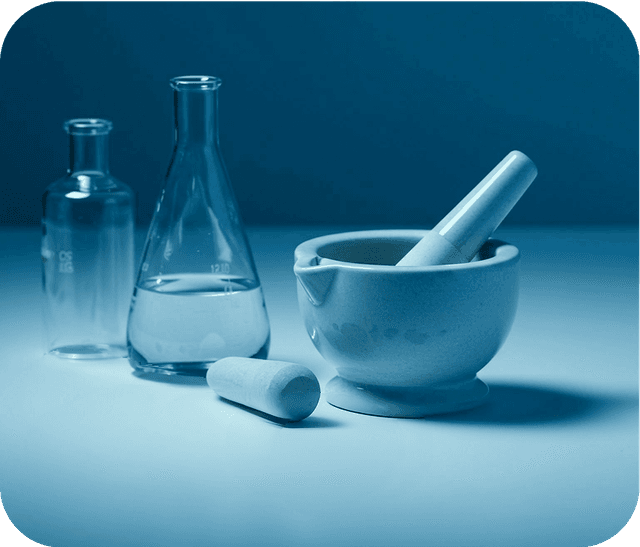Liquid vs Pill – Which Medication Form Is Best for You?

When your doctor prescribes a medication, one of the first things you may notice is the form it comes in. Some medications are available as pills (tablets or capsules), while others come in liquid form. Both work to treat health conditions, but each has its own pros and cons.
Understanding the difference between liquid and pill medications can help you make informed choices and feel more confident about your treatment. Your pharmacist is also available to guide you on which option may work best for your needs.
Pills: The Traditional Choice
Pills are the most common form of medication, used by millions of patients every day. They may be tablets, capsules, or caplets, but all are designed to deliver medication safely into the body.
Advantages of Pills
-
Convenient and portable – Easy to carry and take without special preparation.
-
Long shelf life – Pills usually last longer than liquid medications.
-
Precise dosage – Each pill is measured, so you know exactly how much you’re taking.
-
Less taste – Pills usually have little to no taste, which makes them easier for many people to swallow compared to bitter liquids.
Disadvantages of Pills
-
Swallowing difficulties – Some patients, especially children or older adults, may struggle to swallow pills.
-
Slower absorption – Pills need to be broken down in the stomach, so they may take longer to start working.
-
Not adjustable – Cutting pills in half isn’t always safe, and dosing flexibility is limited.
Liquids: Easier to Swallow
Liquid medications are often chosen for children, older adults, or anyone who has trouble swallowing pills. They can come in syrups, solutions, or suspensions.
Advantages of Liquid Medications
-
Easier to swallow – Especially useful for children, elderly patients, and those with swallowing difficulties.
-
Flexible dosing – Liquids can be measured in smaller or adjusted amounts with a dosing cup or syringe.
-
Faster absorption – Liquids are absorbed more quickly into the bloodstream because the body doesn’t have to break them down first.
Disadvantages of Liquid Medications
-
Shorter shelf life – Liquids may expire faster and sometimes need refrigeration.
-
Taste issues – Some liquids have a bitter or unpleasant flavor.
-
Less convenient – Carrying bottles, measuring cups, or syringes is less portable than carrying a pill.
-
Risk of dosing errors – Measuring liquid doses incorrectly can lead to taking too much or too little.
Factors to Consider When Choosing Liquid vs Pill
When deciding between a pill and a liquid medication, several factors come into play:
1. Age and Ability to Swallow
-
Children and older adults often do better with liquids.
-
Adults who can swallow easily may prefer pills for convenience.
2. Absorption Speed
-
Liquids may start working faster.
-
Pills may take longer but still deliver steady results.
3. Convenience
-
Pills are discreet and travel-friendly.
-
Liquids can be harder to carry, measure, and store.
4. Taste and Tolerance
-
Pills avoid most taste issues.
-
Liquids sometimes need flavoring to make them easier to take.
5. Dosing Flexibility
-
Liquids allow smaller or customized doses.
-
Pills are fixed-dose, unless specifically designed to be split or adjusted.
Common Scenarios Where One Form May Be Preferred
-
For children: Liquid medications are usually easier and safer.
-
For seniors: Liquids can be useful if swallowing is difficult, though pill organizers may help with pills.
-
For fast relief: Liquid medications may act quicker than pills.
-
For long-term use: Pills are often preferred because they’re easier to store and have a longer shelf life.
How Your Pharmacist Can Help
Your pharmacist is the best resource for deciding between liquid and pill forms of medication. They can:
-
Explain the differences between the two options.
-
Check your preferences and needs—for example, if you have trouble swallowing or need a faster-acting option.
-
Provide tools like pill splitters, organizers, or dosing syringes for liquids.
-
Ensure safe usage by reviewing your medication schedule and checking for possible interactions.
Tips for Safe Use
Whether you’re taking liquid or pill medications, safety is key.
-
Follow dosing instructions exactly – Never take more or less than prescribed.
-
Store medications properly – Pills in a cool, dry place; liquids may need refrigeration.
-
Use the right tools – For liquids, always use the dosing syringe or cup provided, not household spoons.
-
Ask before switching – Never change from a pill to a liquid (or vice versa) without consulting your pharmacist or doctor.
Final Thoughts
Both liquid and pill medications are effective—what matters is which one works best for your situation. Pills are portable, long-lasting, and convenient, while liquids are easier to swallow, faster to absorb, and more flexible for dosing.
By considering your lifestyle, health needs, and personal comfort, and by talking with your pharmacist, you can choose the form that helps you stay on track with your treatment and get the best results.

Request a Callback
Have a question or need assistance? Request a callback and a friendly team member will reach out as soon as possible.


